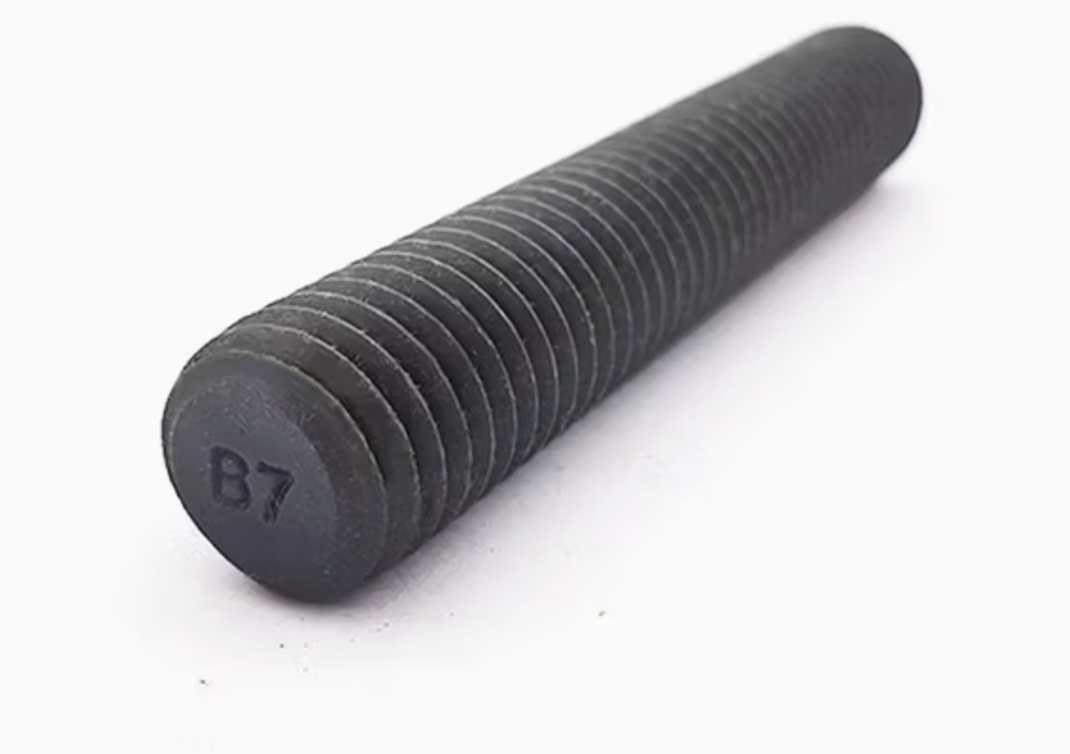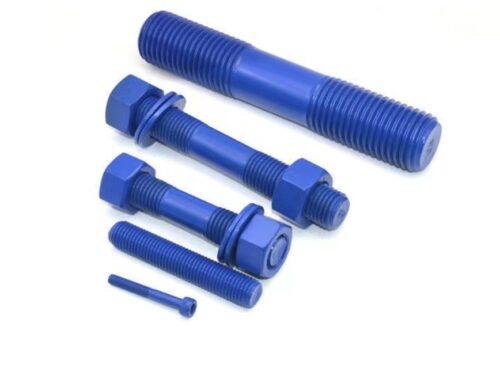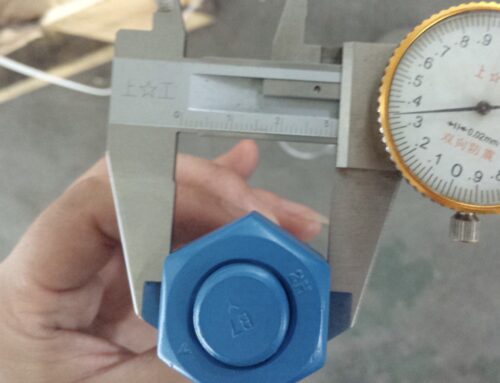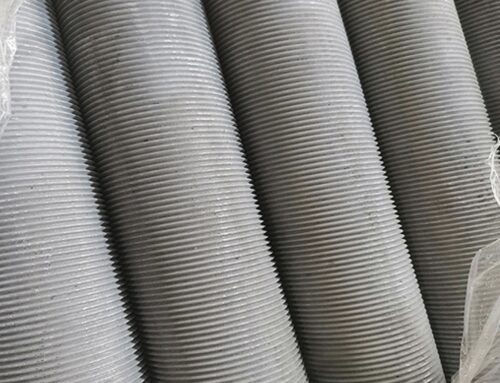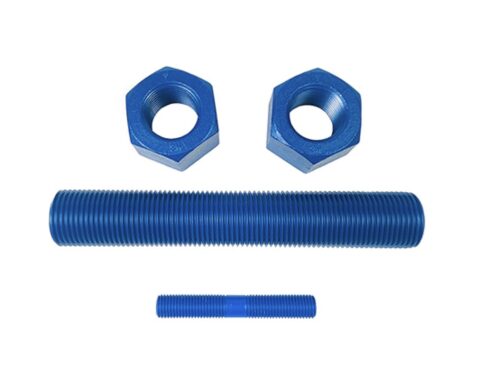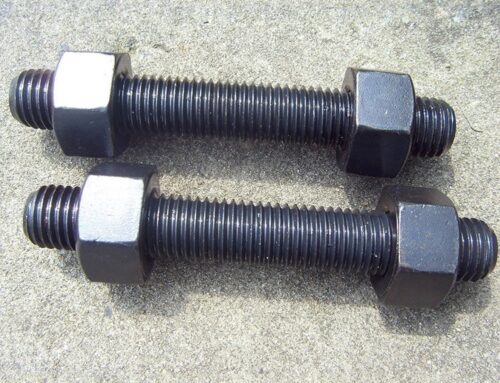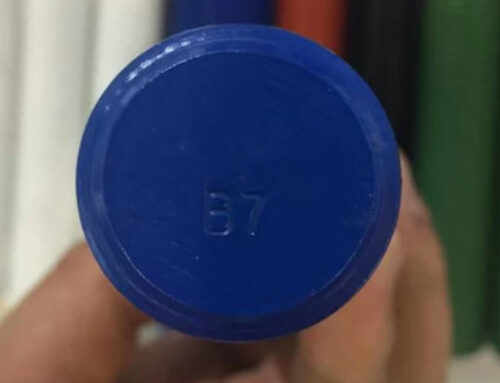ASTM A193 is a specification that covers alloy steel stud bolts intended for high-temperature and high-pressure applications.
ASTM A193 Grade B7 is one of the most commonly used materials in industries such as petrochemical, oil and gas, power generation, and refineries.
Our Supply range for ASTM A193 B7 Stud BOLT
FULLY THREADED STUD BOLT
TYPE OF THREAD:UNC, 8 TPI
TYPE, NUT:HEAVY HEXOGONAL
DESIGN SPEC, NUT:ASME / ANSI B18.2.2 HEX NUTS
DESIGN SPEC, STUD BOLT: ASME / ANSI B18.2.1 STUD BOLT
DESIGN SPEC, THREAD: ANSI B1.1
THREAD CLASS SYMBOL, NUT:2B
THREAD CLASS SYMBOL, STUD BOLT:2A
Material:ASTM A193 Grade B7 stud bolt
Size:M12-M100. 1/2″ to 4“
About ASTM A193 standard
This specification covers alloy and stainless steel bolting materials and bolting components for pressure vessels, valves, flanges, and fittings for high temperature or high pressure service, or other special purpose applications. See Specification A962/A962M for the definition of bolting. Barsand wire shall be hot-wrought and may be further processed bycenterless grinding or by cold drawing. Austenitic stainless steel may be carbide solution treated or carbide solution treated and strain-hardened. When strain hardened austenitic stainless steel is ordered, the purchaser should take special care to ensure that Appendix X1 is thoroughly understood
Download ASTM A193 standard here to see more details
Material Composition of A193 B7
Grade B7 stud bolts are made from Chromium-Molybdenum (Cr-Mo) steel AISI 4140. quenched and tempered,The chemical composition enhances strength, hardness, and resistance to high temperatures and pressure.
| Element | Composition (%) |
|---|---|
| Carbon (C) | 0.37 – 0.49 |
| Manganese (Mn) | 0.65 – 1.10 |
| Phosphorus (P) | ≤ 0.035 |
| Sulfur (S) | ≤ 0.040 |
| Silicon (Si) | 0.15 – 0.35 |
| Chromium (Cr) | 0.75 – 1.20 |
| Molybdenum (Mo) | 0.15 – 0.25 |
A193 B7 Stud Bolt Mechanical Properties for Imperial Size
| Grade | Size | Tensile ksi, min | Yield, ksi, min | Elong, %, min | RA % min | HBW | Rockwell |
|---|---|---|---|---|---|---|---|
| B7 | Up to 2-1/2 | 125 | 105 | 16 | 50 | 321 max | 35 HRC max |
| 2-5/8 – 4 | 115 | 95 | 16 | 50 | |||
| 4-1/8 – 7 | 100 | 75 | 18 | 50 |
A193 B7 Stud Bolt Mechanical Properties for Metric size
| Diameter | Tensile Strength | Yield Strength | Elongation | Reduction | Hardness |
|---|---|---|---|---|---|
| M64 or Below | 860 Mpa | 720 Mpa | 16 | 50 | 321 HB |
| M64 to M100 | 795 Mpa | 655 Mpa | 16 | 50 | 321 HB |
| M100 to M180 | 690 Mpa | 515 Mpa | 18 | 50 | 321 HB |
ASTM A193 Grade B7 Heat Treatment
The heat treatment process for ASTM A193 Grade B7 stud bolts is crucial to achieving the desired mechanical properties, particularly strength and hardness. This alloy steel (chromium-molybdenum steel) is designed for high-temperature and high-pressure environments, and proper heat treatment enhances its performance.
Heat Treatment for ASTM A193 B7
- Quenching and Tempering (required for achieving desired strength and hardness):
- Quenching:
- Temperature: Heat the stud bolts to a temperature of 850°C to 900°C (1562°F to 1652°F).
- Quenching Medium: Quench in oil or air to rapidly cool the material and lock the crystalline structure in a hardened state.
- Tempering:
- After quenching, temper the bolts by heating them to a temperature of 650°C to 700°C (1202°F to 1292°F).Hold for a specific time to achieve the desired combination of strength and ductility.Cooling: Air cool after tempering.
- Quenching:
A193 B7 Marking Requirements
Stud bolts made to ASTM A193 Grade B7 must be clearly marked with:
- Material Grade: “B7”
- Manufacturer’s Identification: Traceable mark.
Nuts and Washers for B7 Stud Bolt
Nuts and washers paired with B7 stud bolts are typically made from materials that conform to ASTM A194 Grade 2H for high-strength applications.
A193 B7 stud bolt Certifications
Manufacturers must provide certifications such as Material Test Reports (MTRs) MTC 3.1 that include:
- Chemical composition
- Mechanical properties
- Heat treatment records
- Hardness Testing
- Microstructure Examination
- Dimensional Inspection
- Compliance with ASTM A193 standards
Surface we can do on A193 B7 Stud bolt
- Cadmium Electroplating
– High Service Temp: 608o F.
– Low Service Temp: N/A; solid below 607o F. - Zinc or Zinc-Nickel Electroplating
– High Service Temp: 788o F.
– Low Service Temp: N/A; solid below 788o F. - Hot Dip Galvanizing
– High Service Temp 800o F.
– Low Service Temp: N/A; solid below 800o - DuPont Teflon® 857G Series PTFE
– High Service Temp: 500o F.
– Low Service Temp: N/A - Xylan® 1400 Series PTFE
– High Service Temp: 450o F. continuous, 550o F. intermittent
– Low Service Temp: -320o F. - Xylar 2® Cermet
– High Service Temp: up to 1,000o F.
– Low Service Temp: N/A
